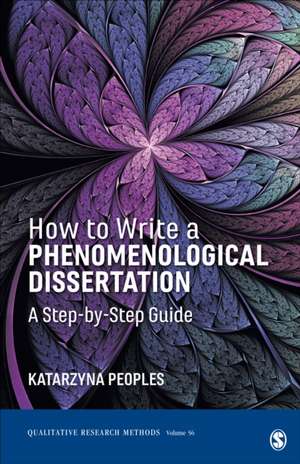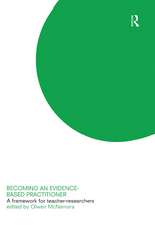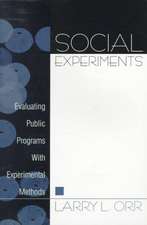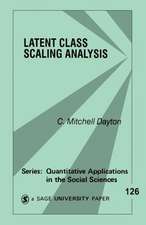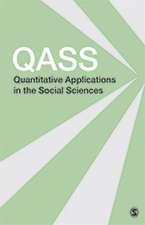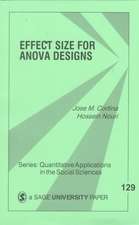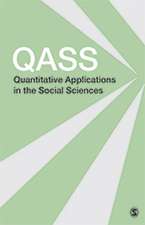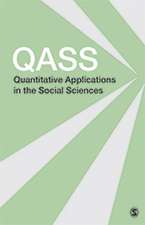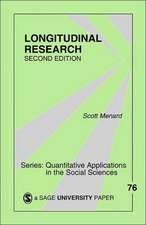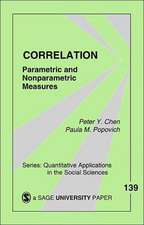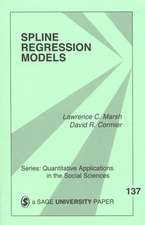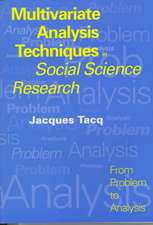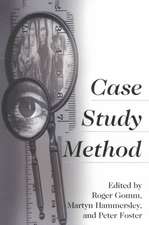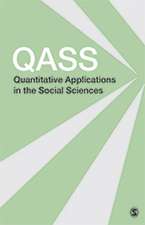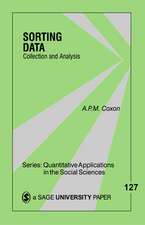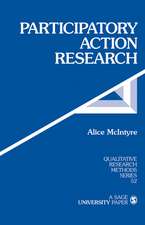How to Write a Phenomenological Dissertation: A Step-by-Step Guide: Qualitative Research Methods, cartea 56
Autor Katarzyna Peoplesen Limba Engleză Paperback – 18 mai 2020
Din seria Qualitative Research Methods
-
 Preț: 286.15 lei
Preț: 286.15 lei -
 Preț: 322.19 lei
Preț: 322.19 lei -
 Preț: 273.68 lei
Preț: 273.68 lei -
 Preț: 286.15 lei
Preț: 286.15 lei -
 Preț: 323.44 lei
Preț: 323.44 lei -
 Preț: 323.15 lei
Preț: 323.15 lei -
 Preț: 321.79 lei
Preț: 321.79 lei -
 Preț: 323.70 lei
Preț: 323.70 lei -
 Preț: 321.52 lei
Preț: 321.52 lei -
 Preț: 322.05 lei
Preț: 322.05 lei -
 Preț: 134.60 lei
Preț: 134.60 lei -
 Preț: 288.79 lei
Preț: 288.79 lei -
 Preț: 290.33 lei
Preț: 290.33 lei -
 Preț: 317.26 lei
Preț: 317.26 lei -
 Preț: 287.82 lei
Preț: 287.82 lei -
 Preț: 290.54 lei
Preț: 290.54 lei -
 Preț: 289.56 lei
Preț: 289.56 lei -
 Preț: 288.04 lei
Preț: 288.04 lei - 18%
 Preț: 715.81 lei
Preț: 715.81 lei -
 Preț: 291.07 lei
Preț: 291.07 lei -
 Preț: 290.69 lei
Preț: 290.69 lei -
 Preț: 288.41 lei
Preț: 288.41 lei -
 Preț: 289.18 lei
Preț: 289.18 lei -
 Preț: 317.26 lei
Preț: 317.26 lei -
 Preț: 288.19 lei
Preț: 288.19 lei -
 Preț: 290.33 lei
Preț: 290.33 lei -
 Preț: 290.69 lei
Preț: 290.69 lei -
 Preț: 317.10 lei
Preț: 317.10 lei -
 Preț: 315.75 lei
Preț: 315.75 lei -
 Preț: 290.69 lei
Preț: 290.69 lei -
 Preț: 290.33 lei
Preț: 290.33 lei -
 Preț: 315.36 lei
Preț: 315.36 lei -
 Preț: 290.54 lei
Preț: 290.54 lei -
 Preț: 290.69 lei
Preț: 290.69 lei -
 Preț: 290.69 lei
Preț: 290.69 lei -
 Preț: 291.07 lei
Preț: 291.07 lei -
 Preț: 285.77 lei
Preț: 285.77 lei -
 Preț: 289.77 lei
Preț: 289.77 lei -
 Preț: 315.36 lei
Preț: 315.36 lei -
 Preț: 288.04 lei
Preț: 288.04 lei -
 Preț: 289.95 lei
Preț: 289.95 lei -
 Preț: 285.62 lei
Preț: 285.62 lei -
 Preț: 288.19 lei
Preț: 288.19 lei -
 Preț: 285.62 lei
Preț: 285.62 lei -
 Preț: 316.12 lei
Preț: 316.12 lei -
 Preț: 314.76 lei
Preț: 314.76 lei
Preț: 320.36 lei
Nou
61.32€ • 66.63$ • 51.54£
Carte tipărită la comandă
Livrare economică 21 aprilie-05 mai
Livrare express 14-20 martie pentru 27.46 lei
Specificații
ISBN-10: 1544328362
Pagini: 192
Dimensiuni: 140 x 216 x 9 mm
Greutate: 0.23 kg
Ediția:First Edition
Editura: SAGE Publications
Colecția Sage Publications, Inc
Seria Qualitative Research Methods
Locul publicării:Thousand Oaks, United States
Recenzii
It seems to make writing a phenomenological study more accessible by offering pathways to students.
It is well-informed, driven by experience and authoritatively written and yet leaves room for others to write their own. It is quite a feat.
While this book conforms with others in the domain of phenomenological research is it superior in many respects; chiefly the author's sound knowledge transfer of philosophy to methods; the fit between conceptual basic assumptions and object of research study; and clarity without sacrificing complexity.
The key strengths are the attempt to provide a systematic understanding of the process from A to Z with a specific focus on phenomenology. This text will be useful and versatile for student locked in to phenomenology.
Cuprins
About the Author
Part I: Before the Dissertation
Chapter 1: How to Begin
What Is Phenomenological Research?
Purpose of This Book
Organization of This Book
Literature Review
Theoretical Framework
References
Part II: Writing the Dissertation
Chapter 2: Introduction and Literature Review
Beginning the Literature Review: What’s Your Topic?
Literature Search Strategy
Create an Outline
Writing the First Dissertation Chapter: The Introduction
Problem Statement
Purpose Statement
Research Questions
Theoretical Framework
Definitions
Assumptions
Delimitations and Limitations
Summary Sections
Completing the Literature Review
References and Suggested Reading
Chapter 3: Methodology
Introduction
Design and Rationale
Researcher Role
Participants
Instrumentation
Procedures
Data Collection
Data Analysis
Using Software
Validity and Reliability
Ethics
Summary
Write the Abstract
References and Resources
Chapter 4: Results
Introduction
Setting
Participant Demographics
Data Collection
Findings
Connecting to the Theoretical Framework
Validity and Reliability
Going Back to Chapter 3
Summary
Appendices
References and Resources
Chapter 5: Discussion
Introduction
Interpretation of Findings: A Dialogue with the Literature
Including Theory Throughout
Limitations
Recommendations for Future Research
Implications
Conclusion
Update the Abstract
Example of Abstract
References and Resources
Part III: After your Dissertation
Chapter 6: Other Phenomenological Methods
Existential Phenomenology
Critical Narrative Analysis (Langdridge)
Dialogal Approach (Halling, Leifer, & Rowe)
Dallas Approach (Garza)
Embodied Life-World Approach (Todres)
Interpretive Phenomenological Analysis (Smith, Flowers, & Larkin)
Life-World Approach (Ashworth)
Lived Experience Human Science Inquiry (van Manen)
Reflective Life-World Approach (Dahlberg)
References
Chapter 7: Creating Your Own Phenomenological Method
Giorgi’s Five Basic Steps
van Manen’s Four Reflections
Results
Participant Demographics
General Description
Reflection
References and Resources
Appendix A: Recruitment Flyer
Appendix B: Screening
Appendix C: Semi-Structured Interview Guide
Appendix D: Consent to Participate
Appendix E: Sample Dissertation Literature Review
Index
Notă biografică
Dr. Peoples studied Existential Psychology at Duquesne University (Pittsburgh, PA) and earned both her Bachelor¿s and her Master¿s in Psychology at Duquesne University before moving over to earn her Doctorate in Counseling Psychology at Duquesne University. She started working in the addictions field in 1999 and shortly after started relationship and marriage counseling simultaneously. Dr. Peoples currently works as a core faculty member in the Counselor Education and Supervision Doctoral program at Walden University. She has written books, book chapters, and journal articles on numerous topics related to counseling, teaching, and philosophy. Dr. Peoples also has an online marriage counseling and coaching practice where she offers virtual counseling.
